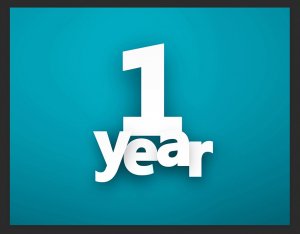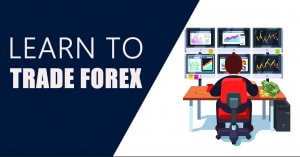Are you looking for information on how to start trading currencies? Surely, you must have read numerous tips, but today we are giving you the most important 11 instructions to take into consideration on your path to becoming a professional trader.
1: Be honest and realistic
Naturally, we all want to earn a higher income, yet to make it happen continually, one does need to set his/her priorities straight. Prioritizing means that each trader must dedicate himself/herself to ongoing development through education, testing, and self-analysis. Additionally, be realistic about your expectations and see if it is plausible for your ideas and plans to come to fruition. Most commonly, traders expect to start trading and immediately get impressive returns when, in fact, everyone is limited to a specific percentage even with impressive skills.
2: Work on your research skills
Forex is not really a marketplace where you can go and find information nor is there a book where you can look up the answers to your burning questions. You should start by discovering credible information sources on the internet, be they social media outlets or YouTube channels. See what type of learner you are because you may do better by enrolling in a course on forex trading.
3: Maintain individuality in all ways possible
Whether you are good at looking for definitions of forex-specific terms or you like to discuss matters you feel excited about with others, you must exercise independence from the very beginning. Try not to seek support from your friends, family, or other members within the forex community. Strive to grow your ability to assess your steps on your own and do not ask for understanding or approval externally. This will allow you to grow an invaluable mindset that will be of extreme importance once you start creating your system.
4: Learn to let go
After you have read about the basics and are looking to apply the theory you have absorbed so far, the time has come for you to discard what is not serving you in terms of information, strategies, and tools to trade. Only keep what you have measured through thorough testing, having previously obtained tangible proofs that something produces good results. Also, learn to let go of any people who may have been assisting you on your path to becoming an independent trader because these individuals are only doing you a disservice after a certain point.
5: Start a demo account
Most experts will tell you the same thing – do not proceed to real trading before you have seen how trading functions in a safe environment. Whatever you feel you may know or believe you have figured out should be assessed through your demo account. Get the impression of what it looks like to trade for real and use this opportunity with your eyes open, as a professional trader is often much scarier because real money is involved.
6: Carry out testing properly
Testing is your best friend in that it will show you the areas that need improvement. Get yourself acquainted with backtesting and forward testing that will help you generate the ultimate version of the algorithm you will use to trade real money. Also, any scientific or quantitative assessment requires proper recording skills, so prepare yourself for detailed journaling of every entry and exit point, among other key items of data. Discipline in this respect is the only way for you not to set yourself up for some major disappointment with your algorithm.
7: Give yourself time
We are all anxious to see the fruits of our labor, but this must not by any means influence our growth. If you feel that you are under a lot of pressure, find exercises or techniques that could help you calm down. And, most importantly, do not assume that there is a way out from doing things step-by-step, as becoming good at forex is a gradual process. Any attempt to speed up the learning or testing part will most probably lead to a scenario that we unnecessarily see too often in the trading world. In the beginning, for example, you might need to readjust your schedule and see how you can absorb all the information without any disturbances. Later, when you feel satisfied with your results, you may even choose to forsake your day job. Nevertheless, whichever stage you are on, make sure that you are not needlessly adding pressure to your everyday life.
8: Get to know yourself
As you are slowly gathering all information you may need and seeing how theory works in practice, give yourself the space to understand how you may be blocking your growth. Are you aware of your major triggers? Are you a perfectionist, never feeling truly happy with your results? Are you a massive controller, feeling compelled to tweak the settings here and there in the middle of the trade? Or, are you potentially scared of success, so you fail to recognize the moments where you can maximize your profit? Do a personality test and discover which traits or characteristics may turn out to be fortunate or detrimental to your trading to know where to divert your attention.
9: Exercise control in every step
Whatever your own set of blockages is, make sure that you get to it before your emotions get to you. Trading is all about knowledge, testing, and a sober mind, so your emotions must be kept under control. Likewise, any laziness in terms of being dedicated to taking notes on your trades or really being present when trading needs to be dealt with before you move on to trading with real money. Being in control also entails properly protecting your assets, so make sure that your trades will never go on and on without you even noticing that your stop losses are off for example.
10: Really devote yourself to growing your money management skills
Trading without money management is basically the same as betting because you are not protecting your trades (thus your finances) properly. You surely do not want to spend all your hard-earned money just like an all-in casino goer, wasting it all in one go. See how you can manage your trades more effectively and make the habit of using the tools and methods that will help you with that. Each trader is individually responsible for fostering and developing a profound understanding of how to handle and invest finances. Understand that without adopting a sustainable mindset, your winnings may eventually go to waste.
11: Expand your options
If your current financial status cannot help you to get the return that would make a difference in your life or let you switch to trading alone, you can be even more motivated to succeed. Do not get discouraged if your initial investment will not provide you with an amazing return, as you only need great demo trading results to be noticed by a prop company for example. If you manage to achieve a good return percentage and present your accomplishments to a certain institution or a hedge fund, you may easily get an offer to trade on their behalf.
As you can see, many of the requirements to start trading involve the development of soft skills, which go hand-in-hand with any technical knowledge. However, we cannot broaden our minds or improve our life standard without curiosity, which will remain to be one of your best allies from the very beginning to some more advanced trading stages. Besides, understand that trading starts the moment you create an account even though no real money is involved. Professional trading is just another term for trading real money for a living, and since we know how success varies individually, do your part the best you can and everything else will fall into place.






